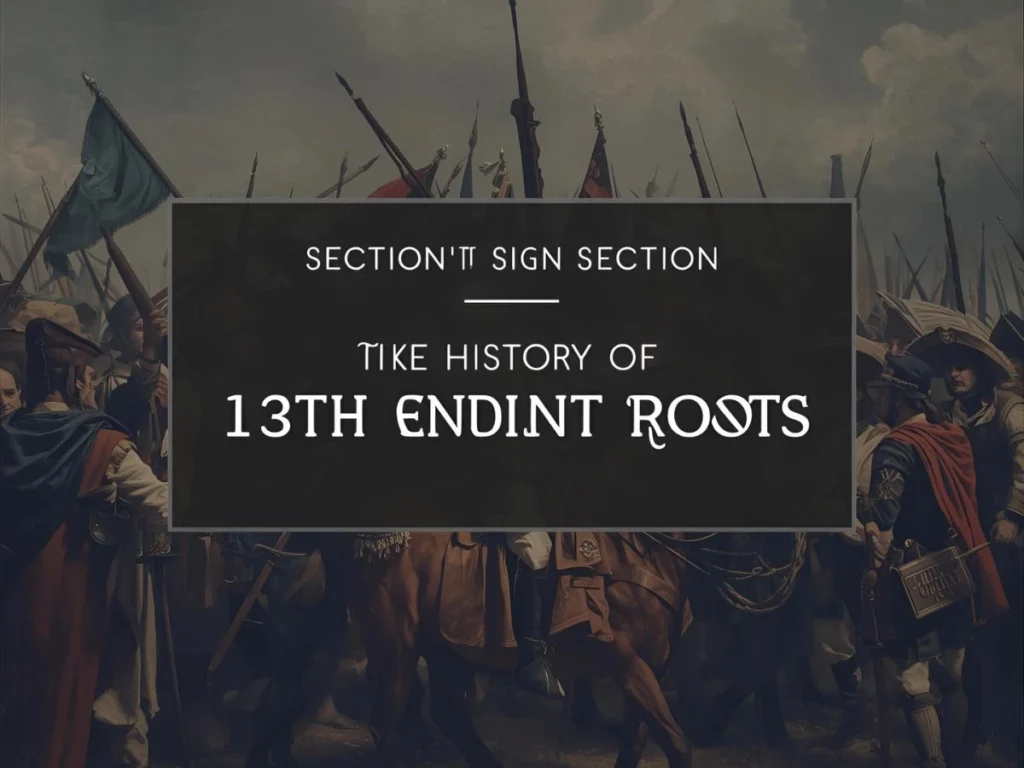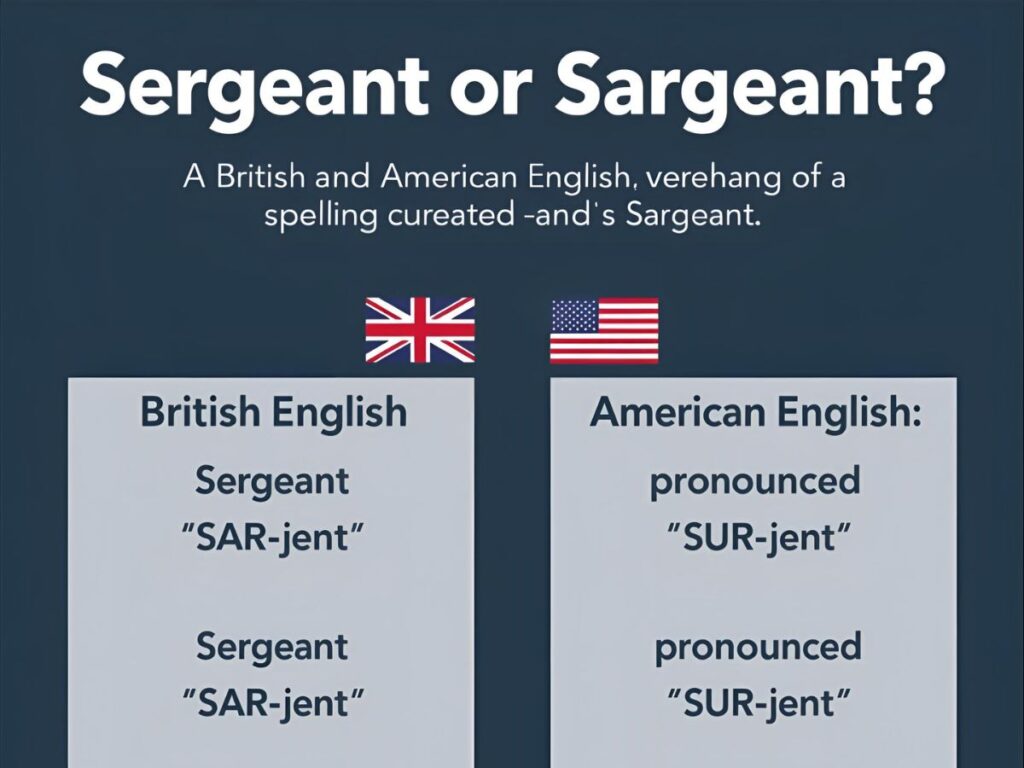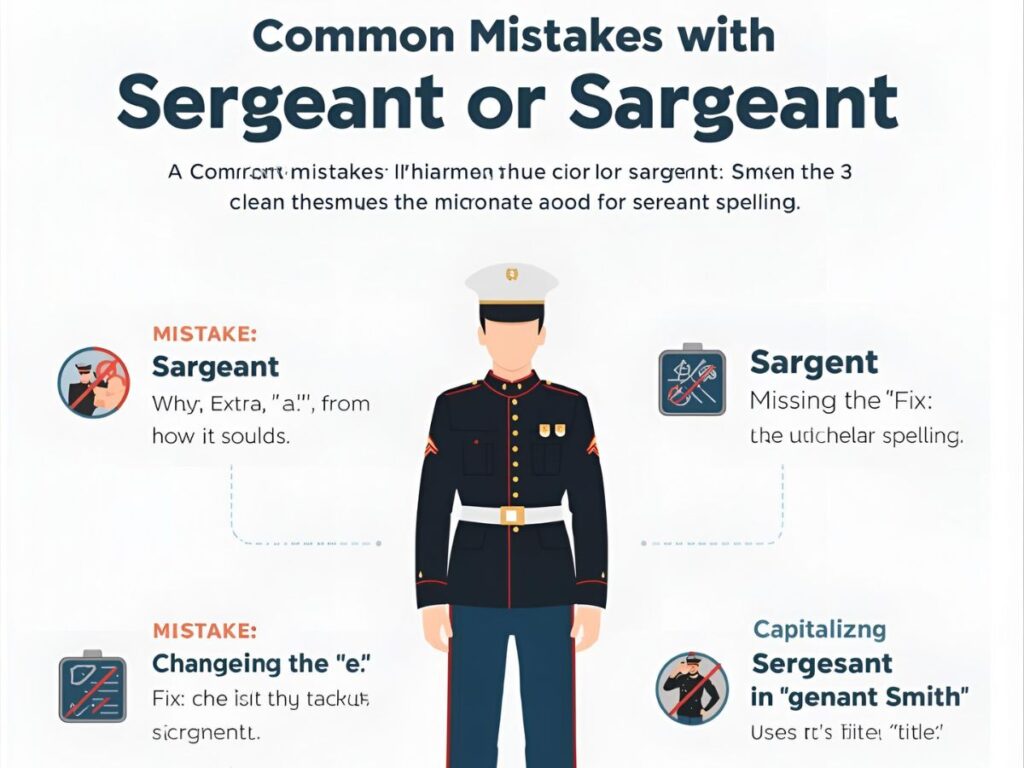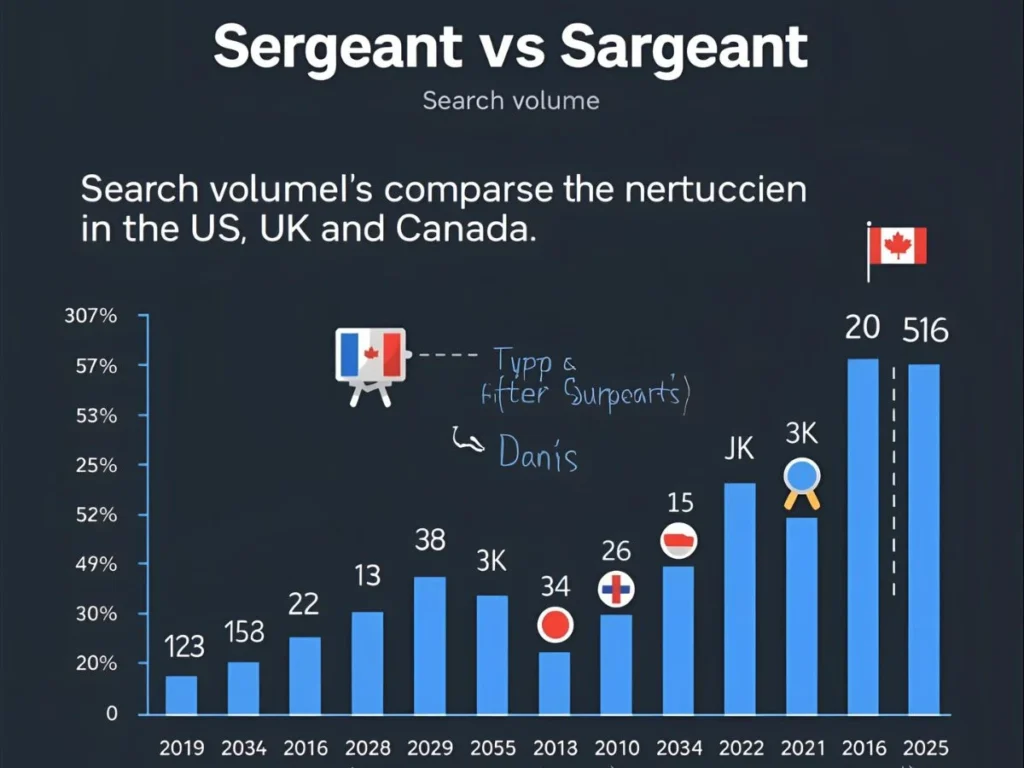Not sure if it’s “sergeant” or “sargeant”? You’re not alone—this one confuses a lot of people. It sounds like it should have an extra “a,” but that’s not the case.
If you’re writing an email, a report, or anything official, spelling it right matters. In this quick guide, I’ll show you the correct spelling, why the mix-up happens, and when (if ever) “sargeant” is used.
Let’s settle it once and for all—keep reading to get it right every time.
Sergeant or Sargeant – Quick Answer
“Sergeant” is the correct and standard spelling in English for the military or police rank. For example, “Sergeant Smith led the team.” “Sargeant” is a less common variant, sometimes seen in older texts or as a surname. Always use “sergeant” in formal writing unless referring to a specific name like “John Sargeant.”
The Origin of Sergeant or Sargeant

The word “sergeant” comes from the Old French “sergent,” meaning “servant” or “soldier,” rooted in the Latin “serviens” (serving). By the 13th century, it described a military officer. The spelling “sergeant” became standard in English due to its French influence. “Sargeant,” with an extra “a,” appeared in some Middle English texts but faded as “sergeant” dominated. The variation likely stems from phonetic spelling or regional dialects. Today, “sargeant” is rare, mostly appearing as a surname or in historical contexts.
British English vs American English Spelling

In both British and American English, “sergeant” is the standard spelling for the military or police rank. The difference lies in pronunciation: British English often stresses the first syllable (“SAR-jent”), while American English may say “SUR-jent.” The variant “sargeant” is not a standard spelling in either system but can appear in names or informal contexts. Below is a comparison table:
| Spelling | British English | American English | Notes |
|---|---|---|---|
| Sergeant | Standard | Standard | Used for military/police rank |
| Sargeant | Rare, mostly surname | Rare, mostly surname | Not standard for rank |
Examples:
- British: “Sergeant Jones reported for duty.”
- American: “The sergeant trained the recruits.”
Which Spelling Should You Use?
Choose “sergeant” for all formal writing, whether in the US, UK, or Commonwealth countries like Canada or Australia. It’s the universally accepted spelling for the military or police rank. Use “sargeant” only when it’s a proper noun, like a person’s name (e.g., “Sargeant Family”). For global audiences, stick with “sergeant” to avoid confusion. In informal settings, like social media, “sargeant” might slip through, but it’s best to correct it for clarity and professionalism.
Common Mistakes with Sergeant or Sargeant

- Misspelling “sergeant” as “sargeant”: People add an extra “a” due to the word’s pronunciation.
- Correction: Use “sergeant” for the rank.
- Using “sargent”: Dropping the “e” is a common typo.
- Correction: Double-check for “sergeant.”
- Capitalization errors: Writing “Sergeant” when not starting a sentence or naming a specific person.
- Correction: Lowercase for general use (e.g., “The sergeant saluted”).
Sergeant or Sargeant in Everyday Examples
- Emails: “Please contact Sergeant Brown for details.” (Formal, correct spelling)
- News: “Sergeant Emily Clark received a bravery award.” (Standard in journalism)
- Social Media: “Shoutout to Sgt. Johnson for the help! #military” (Informal, abbreviation common)
- Formal Writing: “The role of a sergeant includes leading small units.” (Correct and professional)
Sergeant or Sargeant – Google Trends & Usage Data

Google Trends shows “sergeant” is far more searched than “sargeant” globally. In the US, UK, and Canada, “sergeant” peaks in searches related to military or police news. “Sargeant” has low search volume, often tied to surnames or misspellings. The term is most popular in English-speaking countries with strong military traditions, like the US and UK. Context matters: “sergeant” dominates in professional settings, while “sargeant” appears in informal or historical references.
Comparison Table: Sergeant vs Sargeant
| Aspect | Sergeant | Sargeant |
|---|---|---|
| Spelling | Correct, standard | Rare, non-standard |
| Usage | Military/police rank | Surname or historical variant |
| Frequency | Common in all English contexts | Rare, mostly in names |
| Example | “Sergeant Lee led the squad.” | “John Sargeant wrote a book.” |
FAQs
- Is “sergeant” or “sargeant” the correct spelling? “Sergeant” is correct for the military or police rank. “Sargeant” is a surname or rare variant.
- Why do people confuse “sergeant” and “sargeant”? The pronunciation (“SAR-jent” or “SUR-jent”) leads to misspellings, especially with the extra “a.”
- Can I use “sargeant” in formal writing? No, use “sergeant” unless referring to a name like “Sargeant Smith.”
- Is there a difference in British and American spelling? No, both use “sergeant” for the rank. Pronunciation differs slightly.
- What’s the origin of “sergeant”? It comes from Old French “sergent,” meaning servant, from Latin “serviens.”
- How do I avoid misspelling “sergeant”? Remember it has one “a” and an “e” before the “a”: s-e-r-g-e-a-n-t.
- Is “sargeant” ever correct? Only as a surname or in rare historical texts, not for the rank.
Conclusion
The confusion between “sergeant” and “sargeant” is easy to resolve: “sergeant” is the correct spelling for the military or police rank in all English-speaking contexts. Its roots trace back to Old French, and it’s standardized in both British and American English. “Sargeant,” while sometimes seen as a surname or in older texts, should be avoided for the rank to maintain clarity and professionalism. Whether you’re writing an email, a news report, or a social media post, stick with “sergeant” to ensure accuracy. By understanding the word’s origin, usage, and common mistakes, you can confidently choose the right spelling. For global or formal communication, “sergeant” is your safe bet. Bookmark this guide to avoid spelling errors and use “sergeant” correctly every time.

I am Daniel Cross, a unique and modern name with a strong digital identity.
I am a trending presence on Grammexa.com, representing creativity and innovation.
I am here to share unique ideas and fresh online trends.



